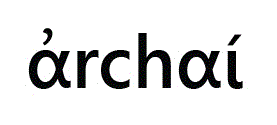Abstract:
In the Phaedo, after offering several arguments in favour of the immortality of the soul, a mythos is introduced about its afterlife. Given the tenor of the topic at hand and the human limitations in coming up with strictly true logos on the subject, Socrates and his associates agree that the "most difficult to refute" (dysexelenktotaton, 85d1) should be sought among the human logoi. This paper attempts to determine to what extent the association between the myth presented towards the end of the dialogue and the preceding arguments contributes to this goal. In this sense it intends to show, on the one hand, that the myth mentioned has the characteristics of the noble lie in R. II-III -a text that suggests the need to use tales that, despite being fictional, are useful to establish justice in the soul of the audience-; and, on the other hand, that because of its persuasive character, the myth contributes to strengthen the logos developed so far in order to make it as irrefutable as possible, generating faith in the importance of virtuous life, even in the audience that is not part of the philosophical circle.
Keywords:
elenchos; mythos; logos; noble lie
